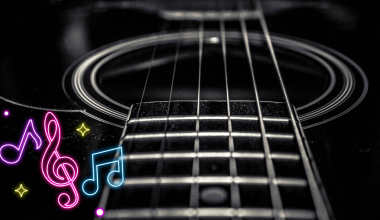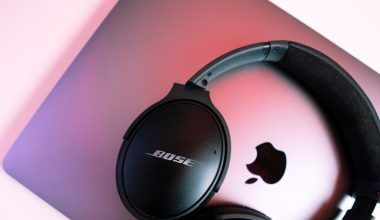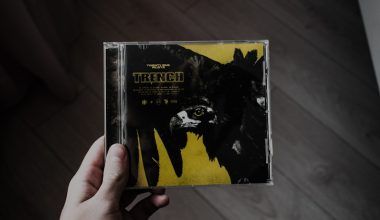If you’re a musician or planning to release your own songs, you might have heard about a UPC code. But what exactly is it, and why is it important? Don’t worry if you feel confused—many artists feel the same when starting out. In simple words, a UPC code (Universal Product Code) is like a name tag for your music. It helps people and platforms like Spotify or Apple Music identify your songs or albums easily.
In this blog, we’ll explain everything about UPC codes in a simple way so that anyone can understand. By the end, you’ll know how to use UPC codes to help your music get discovered, tracked, and sold.
What Exactly is a UPC Code?
Let’s break it down. A UPC code is a 12-digit number that works like an ID card for your music. When you release a song, album, or even merchandise, it needs to have its own unique UPC code. This code ensures that your music can be recognized anywhere in the world, whether it’s a digital platform like Amazon Music or a physical CD sold in a store.
Think of it as a barcode on products you buy from a supermarket. Just like every product has its own barcode, your music needs a UPC code to stand out and be tracked.
Why Do Artists Need a UPC Code?
You might wonder, “Why can’t I just release my song without a UPC code?” Here’s why a UPC code is so important:
- It Makes Your Music Professional: A UPC code shows that your music is ready for global distribution. It’s like getting an official stamp of approval for your work.
- Tracks Sales and Streams: Platforms like Spotify and Apple Music use UPC codes to count how many people are listening to or buying your songs.
- Helps You Get Paid: Royalties (your earnings) are calculated based on sales and streams, and UPC codes ensure you get paid correctly.
- Needed for Playlists: Many curated playlists on platforms require your songs to have a UPC code before they can be added.
Without a UPC code, your music might not reach its full potential.
How to Get a UPC Code for Your Music?
Getting a UPC code is simpler than you might think. Here’s how you can do it:
- Through a Distributor: Many music distributors, like Deliver My Tune, DistroKid, and TuneCore, include a UPC code when you sign up for their service. This is the easiest option for most artists.
- Directly from GS1: GS1 is the official global organization that sells UPC codes. If you want to own your UPC code outright, you can buy it directly from them. But this can be a little expensive.
- From Third-Party Vendors: Some websites sell UPC codes at lower prices. Be cautious and make sure they are genuine.
What Does a UPC Code Look Like?
A UPC code looks like this: 123456789012. It also comes with a barcode, which is the black-and-white lines you see on products.
- The first part of the code tells who made the product (in this case, your music).
- The middle part is unique to your song or album.
- The last digit is a “check digit” to ensure the code works properly.
UPC vs ISRC: What’s the Difference?
Here’s where it can get confusing: UPC codes and ISRC codes (International Standard Recording Code) are both used in the music world, but they do different things.
- A UPC code is for your whole product, like an album or a single.
- An ISRC code is for individual tracks within an album.
For example, if you release an album with 10 songs, the album will have one UPC code, and each of the 10 songs will have its own ISRC code.
Why Does Every Song or Album Need Its Own UPC Code?
Imagine you’re at a party, and everyone’s name is “John.” How would you know who is who? Similarly, if every song or album didn’t have its own unique UPC code, it would be chaos for music platforms. These codes make it easy for platforms and fans to find your music and keep things organized.
Where Do UPC Codes Work in Music?
UPC codes are used on almost every music platform and store, including:
- Digital Stores: Spotify, Apple Music, Amazon, etc.
- Physical Stores: If you’re selling CDs or vinyl.
- Streaming Platforms: For tracking streams and plays.
No matter where your music goes, a UPC code ensures it’s easy to find and track.
Real-Life Benefits of UPC Codes
1. Helping Artists Get Paid
UPC codes make sure every time someone streams or buys your song, it’s recorded properly. Without a UPC code, you might miss out on royalties.
2. Getting Playlisted
Want your song to be on a Spotify playlist? Many playlists won’t consider your music without a UPC code.
3. Analyzing Your Fans
Platforms like Spotify for Artists use UPC codes to give you data about your listeners—where they’re from, how old they are, and more. This helps you connect better with your audience.
How to Use a UPC Code the Right Way
Here are some tips to make the most out of your UPC code:
- Keep It Safe: Write down your UPC code and keep it somewhere safe. You’ll need it often.
- Use It for Marketing: Include your UPC code in your metadata so platforms can track it accurately.
- Double-Check Information: Before submitting your music for distribution, ensure all the details linked to the UPC code (like song title and artist name) are correct.
FAQs About UPC Codes in Music
Q1. Do I need a UPC code for every song?
Yes, if you’re releasing singles, each one will need its own UPC code.
Q2. Can I reuse a UPC code?
No, each UPC code is unique and tied to one release. You can’t use the same code for a different song or album.
Q3. Is it expensive to get a UPC code?
Many distributors include a UPC code in their package, so you won’t need to pay extra. If you buy directly from GS1, it might cost more.
Fun Fact: Did You Know?
The UPC code was first used in 1974 to track a pack of Wrigley’s gum. Since then, it has become the global standard for tracking products—including music!
Why Deliver My Tune is Your Best Choice for UPC Codes
If you’re looking for a stress-free way to get a UPC code, consider using a distributor like Deliver My Tune. They handle everything—from generating your UPC code to distributing your music on major platforms like Spotify, Apple Music, and Amazon.
Deliver My Tune makes it easy for artists by:
- Providing free UPC codes with their packages.
- Offering additional services like AI mastering and social media management.
- Ensuring you get paid accurately and on time.
Final Thoughts: What is UPC Code in Music?
Now that you know what a UPC code is and why it’s so important, you’re ready to take your music career to the next level. Whether you’re releasing your first single or managing multiple albums, having a UPC code ensures your music is professional, trackable, and ready for success.
Remember, getting a UPC code is just one step. Focus on creating great music and let the tools like UPC codes do their job to bring your art to the world.
So, what are you waiting for? Get your UPC code today and start sharing your music with the world!
Related Articles:
For further reading, explore these related articles:
- How to Get an Official Artist Channel on YouTube: A Complete Guide for Artists
- The Best Music Business Strategies for Artists
For additional resources on music marketing and distribution, visit DMT RECORDS PRIVATE LIMITED.






